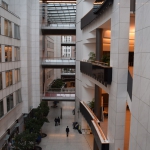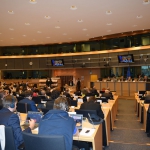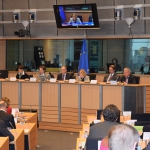Transparency Register
A new version of the EU Transparency Register has been been launched following joint work by the European Commission and the European Parliament. This ‘second generation’ of the Register implements the provisions of the revised Inter-institutional Agreement signed between the European Parliament and the European Commission in April 2014.
The new system brings changes to the way human resources invested in lobbying are declared, requires additional information about involvement in EU committees, forums, intergroups or similar structures, and legislative files currently followed; it also extends the requirement to declare estimated costs related to lobbying to all registrants.
Additionally, a streamlined ‘alerts & complaints’ procedure allows for greater scrutiny and more efficient treatment of allegedly misleading information, and new incentives are given to increase the added value of registering, such as a requirement to register for all those seeking to meet with Commissioners, Cabinet Members or Directors-General or for any organisation wishing to speak at hearings organized by the European Parliament.
A more user friendly website improves the public interface and provides for a more straightforward registration process with guidance provided in a step-by-step approach.
The Juncker Commission intends to make its own proposal in 2015 for a mandatory register of lobbyists covering the Commission, the European Parliament and the Council. The preparation of this proposal is the responsibility of First Vice-President Timmermans.
Pictures
The European Parliament works mainly in Brussels, and takes most decisions in committee meetings open to the public.
Danielle Nouy, the Chair of the Banking Supervisory Authority was at a hearing organised by the Economic and Financial Affairs Committee.



